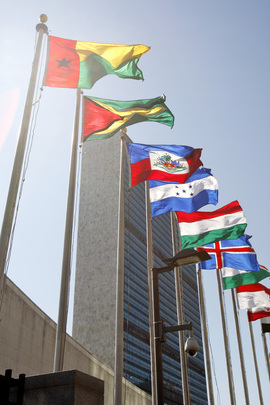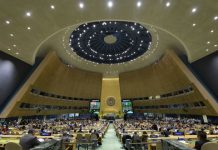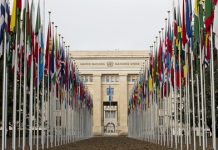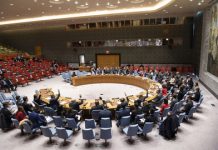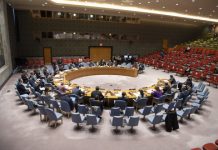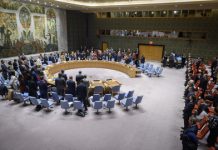Lebanon war: Essential services in south facing collapse, warns UN
Deadly Israeli airstrikes hit targets across Lebanon on Wednesday, prompting renewed condemnation from top UN negotiators and humanitarians, who’ve warned that essential services in the south of the country are close to collapse.
Five people were killed in the attack on Nabatieh, reportedly including the town’s mayor and a humanitarian first responder, said UN Special Coordinator for Lebanon, Jeanine Hennis-Plasschaert.
She warned that “the theatre and intensity of the exchanges of fire” have continued to expand in Lebanon, causing near-unprecedented civilian suffering.
Meanwhile, the UN’s top aid official in Lebanon, Imran Riza, said that intensifying Israeli airstrikes in recent weeks have caused death and injury, mass displacement and extensive destruction.
The conflict has exposed healthcare and frontline workers to attack, along with civil defence centres and water supply systems, which have been pushed “to the brink”, Mr. Riza said.
In Syria, the UN World Food Programme (WFP) said that Syrians who have been hosting an influx of people fleeing war in Lebanon are now at “breaking point”.
WFP Deputy Executive Director Carl Skau said that some 260,000 people have now crossed into Syria to escape bombing and Israeli military ground operations.
Help for them is scarce, though, because funding shortages earlier this year forced the UN agency to cut assistance to the same families who are now helping those who’ve fled Lebanon.
According to WFP, more than half of Syria’s population is already facing food insecurity and some three million are “in the grip of severe hunger conditions”.
Aid teams warn that women and girls are most food insecure
To mark World Food Day on Wednesday, UN humanitarians urged greater awareness about the food insecurity risks faced by women and girls in conflict settings.
This is because they are usually the main providers of meals for their family and as a consequence, they are often obliged to travel greater distances for food, water and firewood.
Wendy Cue from the UN aid coordination office, OCHA, said that this practice raises the risk of women and girls being attacked, sexually assaulted and even raped.
They are also more likely to be removed from school, leaving them vulnerable to early enforced marriage and transactional sex. The dangers are particularly high in the Sahel and Horn of Africa:
“Women play a major role in food production but gender inequality and harmful social norms, such as a lack of access to land or education, are deeply entrenched across the region…There are measures we can take to minimise harm by designing programmes that listen to women’s groups on how to ensure their safety, for example, food distributions could be conducted earlier in the day to allow women to return home in daylight and by adequately funding health services for women, which help us detect where there are problems and provide help and assistance to victims and survivors of gender-based violence.”
Around the world a staggering 730 million people go hungry and more than 2.8 billion are unable afford healthy diets, according to the UN Food and Agriculture Organization.
UN human rights office urges halt to execution of two men in US
To the United States where the UN human rights office, OHCHR, has urged it to join a growing number of nations who’ve abolished the death penalty.
The appeal comes ahead of Thursday’s scheduled execution of two men in the US: Robert Robertson and Derrick Dearman.
Mr. Robertson’s death sentence was delivered “despite substantial evidence of wrongful conviction”, OHCHR said, noting that six people in five different US states were executed over a 12-day period last month.
“This rise in the rate of executions is deeply worrying,” said OHCHR spokesperson Seif Magango, adding that evidence suggested the punishment “has little to no effect in deterring crime”.
Approximately 170 countries have abolished the death penalty to date, according to OHCHR.
Daniel Johnson, UN News.
Music composed and produced by Joachim Harris. All rights reserved.
Source of original article: United Nations (news.un.org). Photo credit: UN. The content of this article does not necessarily reflect the views or opinion of Global Diaspora News (www.globaldiasporanews.com).
To submit your press release: (https://www.globaldiasporanews.com/pr).
To advertise on Global Diaspora News: (www.globaldiasporanews.com/ads).
Sign up to Global Diaspora News newsletter (https://www.globaldiasporanews.com/newsletter/) to start receiving updates and opportunities directly in your email inbox for free.


